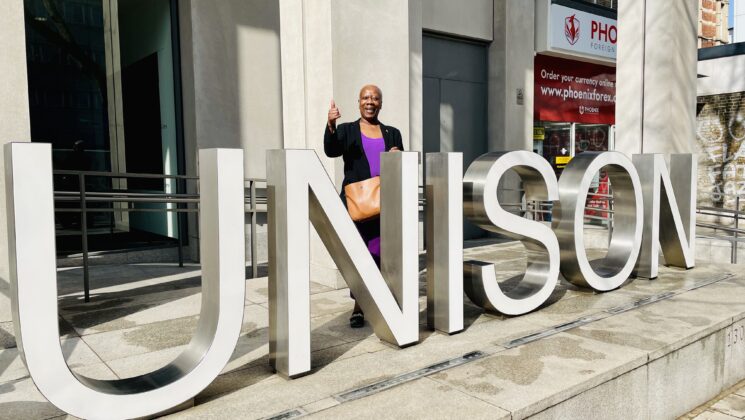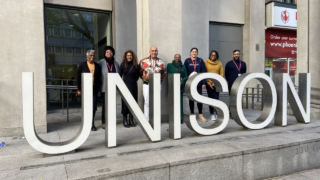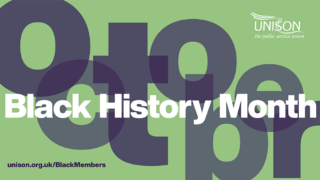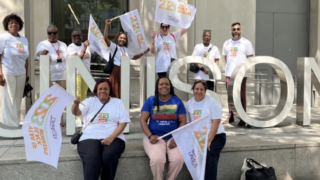This is UNISON’s Year of Black Workers. In 2023 we have a new opportunity to establish a legacy of change and radical inclusion, and the South East region is fully behind this initiative.
I will be doing all I can from my position as Regional Convenor and Chair of the region’s Black Members Committee to make sure our region supports branches and activists and makes the Year of Black Workers a priority in all our work plans and agendas.
This will naturally need to have leadership from our brilliant Black self-organised groups, but all branches, activists and members – whatever your ethnicity – need to be involved if change is going to be achieved.
Everyone has a role to play in identifying systematic issues and challenging and changing disempowering practices and policies which prevent Black members from engaging at work or in union activities.
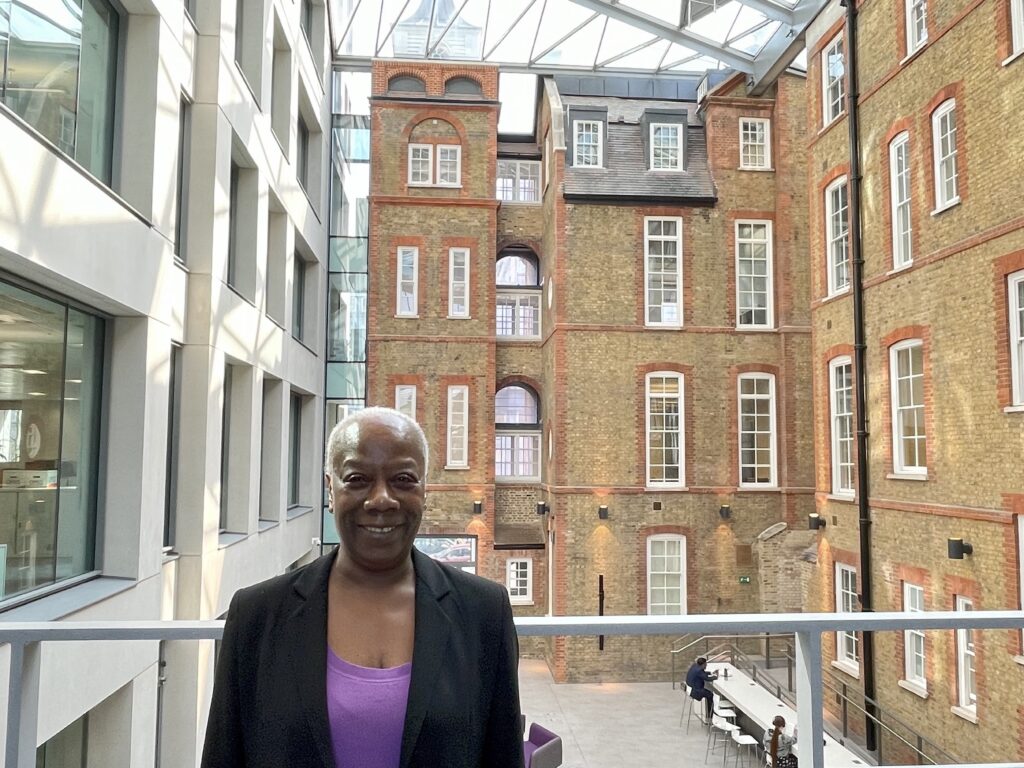
My own experience in the NHS has shown me that Black NHS workers are less likely to speak up when they have concerns about health and safety, or lack of PPE, or other issues which are blocking them. Experience of being marginalised or ignored is a something which individuals can’t overcome themselves. We need allies and we need the trade union values of unity and solidarity.
There are still so many issues which disproportionately affect Black people. I hope everyone reading this has at least some awareness of these, but I’ll highlight a few which are of particular concern to me.
According to an independent report by the Commission on Race and Ethnic Disparities, Employment, fairness at work, and enterprise:
- The employment rate for black people (69%) is significantly lower than their White British counterparts
- Black African people have the highest rates of youth employment at 26%
- The pre-pandemic employment rate for black people was only 69% in 2019, with the pandemic likely exacerbating this
- The ethnicity pay gap figure sits at 8% less for Black Africans on average than their White British counterparts
- Black employees had a higher rate of experiencing discrimination at 29%.
There are no legitimate reasons why these gaps should exist. The only conclusion we can draw is racism exists, it’s that simple. And it’s there both on a systemic level and for some a personal level too. And despite decades of civil rights campaigns and calls for equality, things are not improving anywhere near fast enough. I’ll put it in simple language, in 2023 these gaps are simply unacceptable. We won’t sit around waiting for change, we need to make change happen for ourselves.
And change starts at home. Part of the legacy we need to create within UNISON is a union with more Black activists and more Black experience and leadership at senior levels. We need to empower and support people, and give people the tools to excel.
2023 and Year of Black Workers gives us the impetus and the spark to make these necessary changes, but it’s up to all of us to deliver actions and not just words. I hope you’ll all join me in this and make 2023 a watershed moment for Black people in UNISON and beyond.

